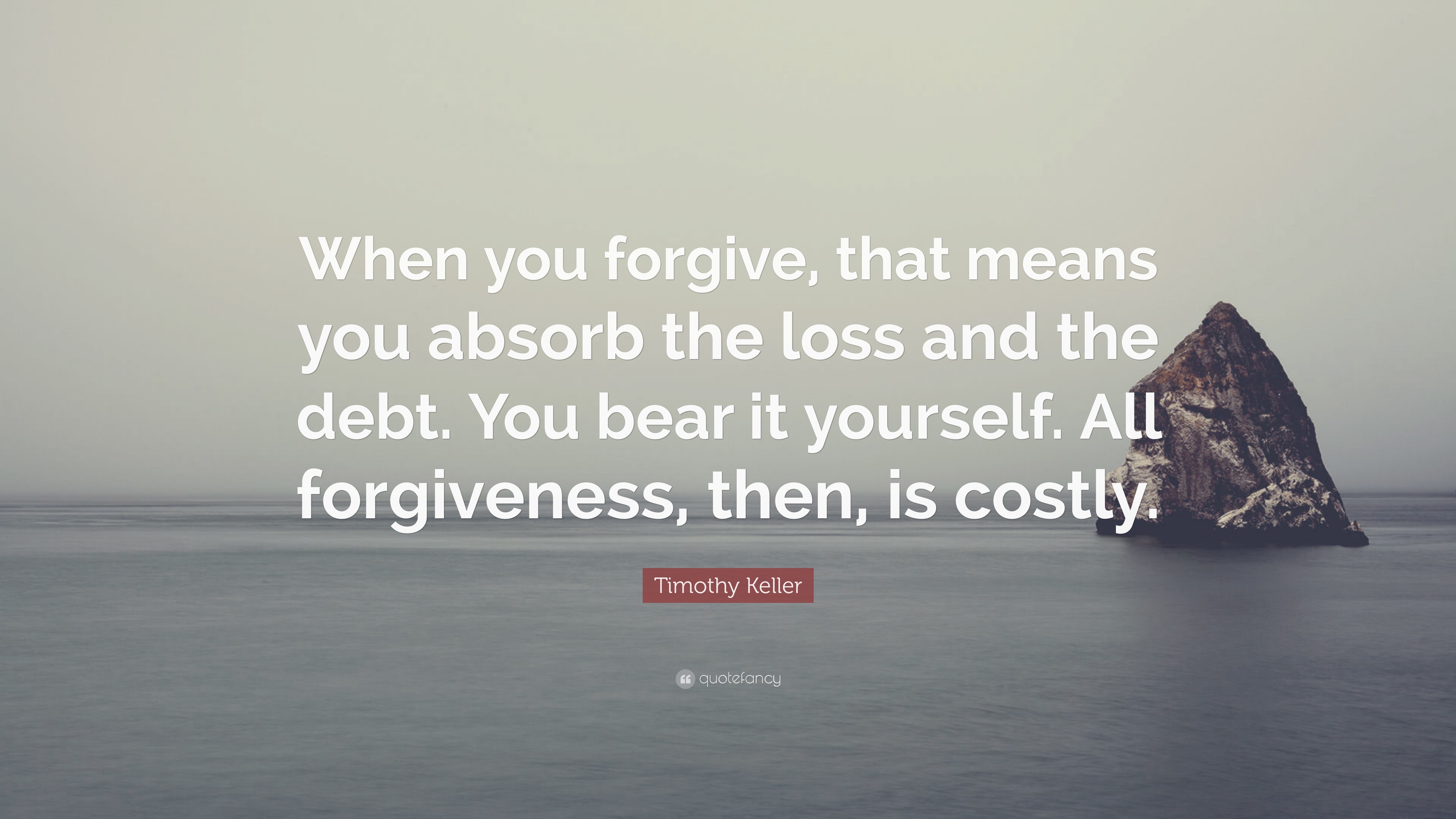

It’s brought a lot of us to repentance, and I think we’re going to be looking for ways forward. But to some degree, I think it’s just humbled us, I think it’s refined us. The church always has dealt with change, said Keller, who believes “everything’s been against the Christian church right now. And as a result, people are moving away.” Now the evangelical church, especially the white evangelical church, has over-identified with conservative politics. But it happened partly because the mainline church over-identified with liberal politics. The evangelical church started its decline about 20 or 30 years later. “It started in the seventies, maybe even the sixties. “The mainline church moved away from orthodox Christianity, watering down the doctrine, they went into decline first,” he said. While others see a Christian church in decline, he sees hope through teaching virtues such as forgiveness, he said. Keller believes followers of Jesus Christ need to demonstrate forgiveness to a culture that desperately needs it. I think forgiveness is going to be harder for future generations to come.”
#Tim keller forgiveness how to#
I’ve talked to several university faculty members, counselors and people on campus who say college students are absolutely, completely flummoxed and conflicted over breaking up, they don’t know how to do it.

“They don’t go and talk to them and say, ‘Hey, you did this or that,’ they just have nothing to do with them. “What young adults learn is if they don’t like somebody or feel like they’re being used, they just stop texting and emailing,” the 72-year-old pastor noted. That’s an especially acute need with young adults, he said, who have a problem with forgiveness. One of his hopes is to explain the need for forgiveness. Vengeance believes that since you knocked someone’s tooth out, I’m going to knock all your teeth out.” Without properly understanding that relationship, people will continue to seek vengeance, he said. Keller believes the two go hand-in-hand: There can be no true justice without forgiveness. Many young people see forgiveness as the opposite of seeking justice.” You don’t see as many people being kind and forgiving, and a lot of young people question whether we should do forgiveness. The book is needed, he believes, because “there’s a lot more anger in today’s culture. Keller is a prolific author and was the founding pastor of Redeemer Presbyterian Church (PCA) in Manhattan, which he started in 1989 and led for 28 years.

This is the topic of his latest book, Forgive: Why Should I and How Can I? Now there’s a lot of people questioning it.” I think most people would say, “Oh yeah, forgiveness is great. “There’s a problem with forgiveness in our culture right now,” he said in a recent interview.

Christian Union develops leaders to lead in the public sphere with humility, modeling forgiveness and justice, and pursuing the work of Christ in all that they do.Tim Keller wants to help forgiveness have a good reputation once again. In a culture that prefers to remove and punish those who step out of line, the gospel has much to say about forgiving the unforgivable, extending mercy, and allowing love to ultimately conquer hate.Ĭhristian Union wants to equip believers of every age to be able to think biblically and theologically in order to challenge a culture that rejects the foundations of God’s created order. Tim Keller explores the slippery tightrope of forgiveness and its accompanying movements: truth-telling, rectification, reconciliation, and restoration. This thoughtful and challenging article by Dr. Where those who experienced horrific tragedies in school shootings or the murder of a loved one were once applauded for their public declarations of forgiveness for the perpetrator, the new line of thinking argues, “our constant forgiveness perpetuates the cycle of attacks and abuse.” Tim Keller (via Facebook)Though the reasons for this shift in approach are manifold, ranging from a deep desire for accountability and change after years of minimal progress to a generation that is no longer rooted in Christian ethics to a “therapeutic culture” that primarily looks out for the feelings of each individual, forgiveness has become a symbol of weakness and a means of continuing oppression. and Nelson Mandela, whose actions and methodology were marked by Christian beliefs and “the ethics of love, forgiveness and reconciliation,” this new battle for justice is leaving the concept of forgiveness behind. But unlike the previous racial justice movements of Martin Luther King Jr. In the past several years, the new racial justice movement has begun.


 0 kommentar(er)
0 kommentar(er)
